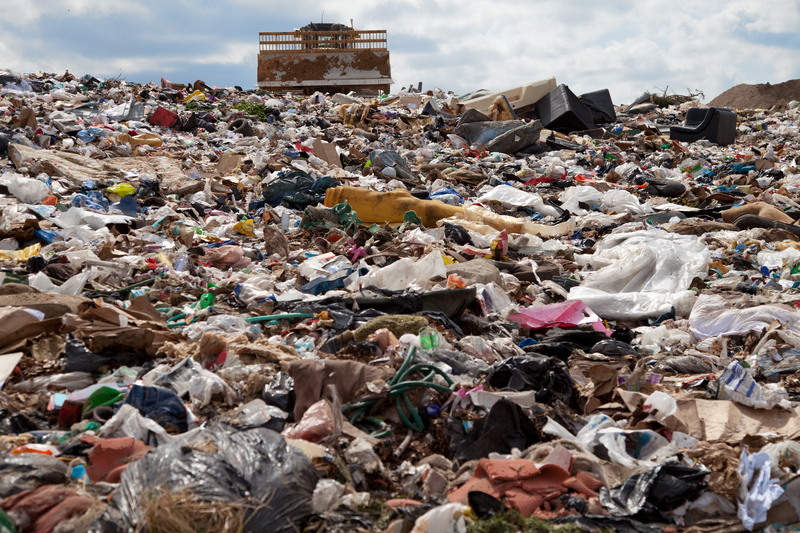Engaging Ways to Educate Children on Recycling Practices
Recycling is essential for creating a sustainable future, yet teaching children the value of environmental responsibility can sometimes be challenging. With the right methods, educators and parents can make recycling fun, interactive, and memorable. In this comprehensive article, we explore engaging ways to educate children on recycling practices using a variety of creative strategies and activities that foster lifelong eco-friendly habits.
Why Teaching Children About Recycling is Important
- Building Responsible Habits: Instilling recycling practices in children helps them form lifelong environmentally-friendly routines.
- Empowerment: Knowledge empowers kids to make positive changes and share environmental values with others.
- Sustainability: Children who understand the impact of waste are more likely to make sustainable choices throughout their lives.
- Protecting Wildlife: Recycling reduces landfill waste, protecting landscapes and ecosystems that are home to wildlife.
Children are naturally curious and open to learning new practices. Introducing them early to the importance of recycling benefits both the individual and the planet as a whole.

Creative and Interactive Recycling Education Methods
Engaging children on recycling does not have to be a mundane or complicated task. With creativity and the right educational tools, recycling education for kids can be both entertaining and impactful. Below are some innovative ways to teach kids about recycling and instill green habits for life.
1. Hands-On Sorting Games
One of the most effective recycling activities for children is to physically involve them in the process. Create a sorting game using real recyclables and color-coded containers. Allow children to sort items like paper, plastic, metal, and glass. This hands-on experience reinforces their understanding of what materials can be recycled and what ends up in landfills.
- Turn sorting into a timed race for added excitement.
- Use pictures and labels for younger children.
- Discuss why certain items cannot be recycled and what happens to them.
2. Creative Craft Projects with Recyclables
Another engaging way to teach about recycling is through upcycling old materials into new creations. Encourage creativity by leading art projects that use recyclables, such as making bird feeders from plastic bottles, musical instruments from cans, or collages with old magazines. These activities show children the possibilities of reusing what would otherwise be considered waste.
- Host a recycled-art show where children display their projects.
- Assign themes like "Eco-Sculptures" or "From Trash to Treasure."
- Encourage storytelling about the life of an object before it was recycled.
3. Recycling-Themed Storytime
Books and stories are powerful tools for teaching kids about recycling habits. Choose age-appropriate books that revolve around environmental themes. After reading, engage children in discussions about the main takeaway and ask them to brainstorm ways they can help the planet in their daily lives.
- Let children illustrate their own recycling stories.
- Organize puppet shows using recycled materials as puppets.
4. Educational Recycling Videos and Apps
Leverage technology to make recycling education fun for kids. There are plenty of educational videos and apps designed to teach eco-friendly habits. These offer interactive lessons, recycling quizzes, and virtual games where children sort recyclables and learn about sustainability in an immersive way.
- Choose age-suitable multimedia resources with engaging visuals.
- Create a group activity where kids view a video and then discuss what they learned.
5. Family or Classroom Recycling Challenges
Motivate children by turning recycling into a friendly competition. Set up a monthly challenge at home or in school to see who can recycle the most or create the least amount of waste. Track progress with colorful charts or stickers, and offer eco-friendly rewards.
- Start a class recycling leaderboard to motivate participation.
- Recognize effort and creativity, not just quantity recycled.
6. Recycling Field Trips
Organize visits to local recycling centers, landfills, or community clean-up events. These real-world experiences give children a firsthand look at what happens to waste and why recycling matters. Field trips often leave a lasting impression and make environmental lessons truly come alive.
- Arrange guided tours with interactive demonstrations.
- Let children ask questions and share observations afterwards.
7. Build a School or Home Recycling Station
Involve children in setting up a dedicated recycling area at home or in the classroom. Allow them to decorate the containers, label bins, and take charge of maintaining the system. When kids feel ownership of the process, they are more likely to stick with it.
- Assign recycling monitor roles to rotate among students or family members.
- Make weekly "recycling checks" part of the routine.
Incorporating Recycling Lessons into Everyday Life
Making ecological education a part of daily routines ensures that recycling becomes second nature. Here are strategies to seamlessly blend recycling lessons into everyday activities.
Lead by Example
Children learn best by observing adults. Let them see you consistently sorting recyclables, reusing bags, avoiding single-use plastics, and participating in community clean-ups. Small actions, demonstrated daily, reinforce your commitment to eco-friendly living.
Use Visual Cues and Reminders
Place posters, signs, and infographics around the house or school that highlight what materials go where. Easy-to-understand images and fun facts encourage kids to remember and follow recycling protocols.
Connect Recycling to the Bigger Picture
Help children understand that their recycling efforts impact the world beyond their home. Discuss the conservation of resources, the reduction of pollution, and the protection of natural habitats. Use visual aids, such as before-and-after photos of cleaned-up spaces, or documentaries about wildlife protection.
Integrating Recycling into Academic Subjects
Recycling can fit seamlessly into subjects like science, math, and language arts, making it an interdisciplinary topic that enhances critical thinking and problem-solving skills.
Science Experiments and Lessons
Study how different materials break down over time by burying samples in soil and observing decomposition rates. Discuss the chemical composition of recyclable and non-recyclable materials and how recycling conserves energy.
Math Projects
Encourage kids to measure how much waste is produced over a week and calculate how much can be diverted from landfills through recycling and composting. Graph results and analyze trends over months.
Creative Writing Exercises
Involve students in creating poems or short stories centered on recycling. Assign persuasive essays where they advocate for recycling programs or write letters to local government officials about environmental initiatives.
Developing a School-Wide Recycling Program
Establishing a sustainable and well-structured recycling initiative at school models positive behavior for students and motivates the entire community.
- Appoint Student Recycling Leaders: Empower older students to lead by example and organize educational activities for younger peers.
- Host Eco-Events: Arrange recycling drives, environmental fairs, or trash-free lunch days to raise participation and awareness school-wide.
- Track Progress: Display charts in hallways showing how much waste has been recycled and set collective goals for the school year.
- Involve Parents: Send home newsletters with recycling tips and encourage recycling at home.
Community Involvement in Recycling Education
Effective recycling habits for children are most impactful when reinforced by community support. Collaborative efforts ensure consistency and deeper engagement.
- Partner with Local Organizations: Work with recycling centers, environmental groups, or local businesses to offer workshops and campaigns for families.
- Set Up Collection Drives: Organize neighborhood events for collecting paper, electronics, or clothing, turning recycling into a community celebration.
- Create Public Art: Collaborate with artists and students to make murals or sculptures from recyclables, raising awareness and beautifying public spaces.

Addressing Common Misconceptions About Recycling
To help children truly understand the recycling process, clarify common myths:
- Myth: "Everything can be recycled."
Fact: Not all materials are recyclable. Teach children to look for recycling symbols and check local guidelines. - Myth: "One person's effort doesn't matter."
Fact: Every item recycled makes a difference, especially when multiplied by millions of people! - Myth: "Recycling is too much work."
Fact: With the right systems in place, recycling quickly becomes an easy routine.
Conclusion: Inspiring the Next Generation of Eco-Champions
The journey to a healthier planet begins with education and action. By making use of the engaging ways to educate children on recycling practices outlined above, we equip young minds with the tools and inspiration necessary to make positive choices for the environment. From joyful games and artistic projects to school-wide programs and creative technology, there are endless opportunities to foster a deep and lasting understanding of recycling among children. The more enjoyable and relatable we make the process, the more likely children will develop green habits for life, benefitting the planet for generations to come.
Start educating, start recycling--our future depends on it!